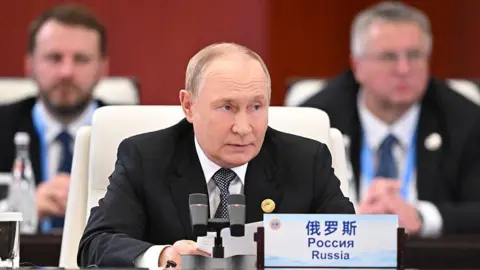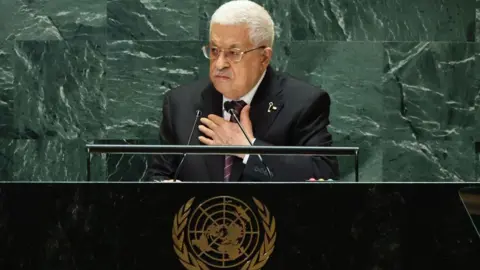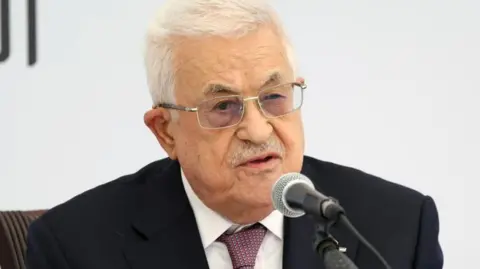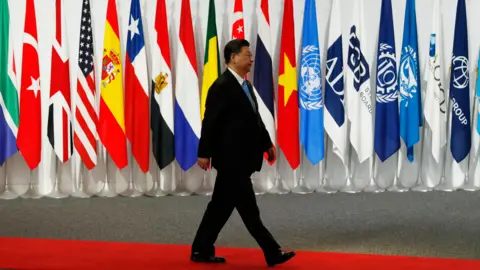The recent pledge by French President Emmanuel Macron to formally recognize Palestinian statehood adds significant pressure on UK Prime Minister Sir Keir Starmer to consider a similar move. This development comes at a time when France has been eager to take action, having delayed previous announcements due to geopolitical tensions surrounding Israel and Iran's nuclear program.
Macron has indicated that this recognition will be made official during the upcoming United Nations General Assembly in September. This strategic timing is meant to galvanize support from other nations and enhance diplomatic momentum. He emphasized to UK parliamentarians that collaborative efforts in recognizing Palestine are vital for achieving peace in the region.
A senior French diplomat noted that UK cooperation could serve as a catalyst for other countries to join in this initiative, arguing that solidarity between the UK and France—two permanent members of the UN Security Council—could demonstrate serious intent to address the Palestinian situation. They asserted, “We have the opportunity to restart the process by bringing all relevant parties together.”
However, the UK government has been cautious about this historic recognition. Long-standing British policy argues that such a gesture should not be made prematurely and should only be part of a comprehensive political resolution. British officials believe that recognition could weaken their position by turning a crucial diplomatic strategy into a superficial gesture. Past remarks by politicians including David Cameron have further complicated the debate, suggesting recognition might be better integrated into an ongoing process rather than a standalone action.
There are concerns among UK officials about repercussions from allies, particularly the US and Israel, both of whom oppose unilateral recognition of Palestine. The UK has historically been hesitant to deepen its commitment towards the Palestinian Authority, which lacks comprehensive reforms.
Currently, the British government appears to be in a holding pattern. Recently, Starmer reaffirmed the right to Palestinian statehood but insisted on a ceasefire first as a precursor to recognition. Foreign Secretary David Lammy echoed this sentiment, emphasizing the need for a political process aimed at a two-state solution that guarantees security for both Israelis and Palestinians.
The rising calls from MPs, retired diplomats, and various coalitions urging the government to act are compounded by increasing pressure from within the Parliament. Members are advocating for a decisive shift in the UK’s diplomatic approaches to aid recognition of Palestine.
Health Secretary Wes Streeting's comments in Parliament suggested a growing urgency for international acknowledgment of Palestine before the opportunity is lost, challenging the established government stance regarding the timing of such recognitions.
The upcoming months will be pivotal for the British government as it navigates pressures regarding Palestinian recognition. A failure to act could lead to dissent in Parliament and challenges to the current administration, while a reluctant alignment with France might yield little diplomatic progress. Despite over 140 countries having already recognized Palestine, the immediate impact on conditions in Gaza remains uncertain, thereby underscoring the complexity of the issue at hand.
Macron has indicated that this recognition will be made official during the upcoming United Nations General Assembly in September. This strategic timing is meant to galvanize support from other nations and enhance diplomatic momentum. He emphasized to UK parliamentarians that collaborative efforts in recognizing Palestine are vital for achieving peace in the region.
A senior French diplomat noted that UK cooperation could serve as a catalyst for other countries to join in this initiative, arguing that solidarity between the UK and France—two permanent members of the UN Security Council—could demonstrate serious intent to address the Palestinian situation. They asserted, “We have the opportunity to restart the process by bringing all relevant parties together.”
However, the UK government has been cautious about this historic recognition. Long-standing British policy argues that such a gesture should not be made prematurely and should only be part of a comprehensive political resolution. British officials believe that recognition could weaken their position by turning a crucial diplomatic strategy into a superficial gesture. Past remarks by politicians including David Cameron have further complicated the debate, suggesting recognition might be better integrated into an ongoing process rather than a standalone action.
There are concerns among UK officials about repercussions from allies, particularly the US and Israel, both of whom oppose unilateral recognition of Palestine. The UK has historically been hesitant to deepen its commitment towards the Palestinian Authority, which lacks comprehensive reforms.
Currently, the British government appears to be in a holding pattern. Recently, Starmer reaffirmed the right to Palestinian statehood but insisted on a ceasefire first as a precursor to recognition. Foreign Secretary David Lammy echoed this sentiment, emphasizing the need for a political process aimed at a two-state solution that guarantees security for both Israelis and Palestinians.
The rising calls from MPs, retired diplomats, and various coalitions urging the government to act are compounded by increasing pressure from within the Parliament. Members are advocating for a decisive shift in the UK’s diplomatic approaches to aid recognition of Palestine.
Health Secretary Wes Streeting's comments in Parliament suggested a growing urgency for international acknowledgment of Palestine before the opportunity is lost, challenging the established government stance regarding the timing of such recognitions.
The upcoming months will be pivotal for the British government as it navigates pressures regarding Palestinian recognition. A failure to act could lead to dissent in Parliament and challenges to the current administration, while a reluctant alignment with France might yield little diplomatic progress. Despite over 140 countries having already recognized Palestine, the immediate impact on conditions in Gaza remains uncertain, thereby underscoring the complexity of the issue at hand.





















